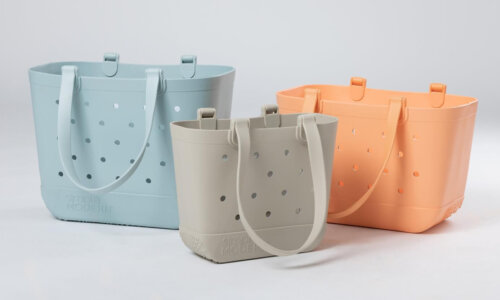As you search online for gifts this holiday season, the Better Business Bureau is warning about a surge in counterfeit goods and cheap imitations that will leave you disappointed.
MORE: Holiday shoppers warned against buying counterfeit luxury goods
They are often advertised on your social media feeds, with images of handbags, jewelry and clothing that look great and are affordable.
Sierra Harper knows about the risks all too well, after being burned by several online purchases.
She has ordered jewelry online, but now prefers shopping at craft fairs as opposed to clicking a photo on a website.
“It doesn’t always look like it does in the picture,” she said.
If you don’t check out an online seller very carefully, there is always the chance that something you order that is really cute turns out to be a lot smaller, cheaper or something completely different when it finally arrives.
Online shopping fraud widespread, BBB says
Ripoffs like these are becoming more and more common, according to the Better Business Bureau, which says online shopping fraud makes up more than a third of the scams reported to the BBB.
And 36 percent of retail fraud reports originate from copycat or fake websites, according to the BBB’s Josh Planos.
“There’s this preconceived notion that the only time you hear about counterfeit goods is when someone is buying a Louis Vuitton purse,” he said. “And certainly, we get reports like that. But in many more instances, we receive reports about products like sports jerseys, golf clubs, watches, insulated mugs and do-it-yourself products” that turn out to be cheap imitations of the real thing.
Where are people getting ripped off? Planos says nearly half of those reported scams originate on social media, in the ads alongside your feed.
So before you click on an advertisement, he cautions, hover over the link to view the URL (web address). Even better: Use a computer, not your smartphone.
“You’re gonna have much more of a sense of what that URL truly consists of if you’re on a desktop rather than on an iPhone or Android phone,” he said.
Warning signs of a ripoff
To avoid counterfeit goods, Planos says:
- Watch out for items priced much lower than what you see in-store, especially on items like handbags or name-brand athletic wear.
- Check for grammatical errors.
- Check for slight misspellings of a name brand.
- Look for a company’s street address: if you can’t find one, the business may be fake.
The last red flag: Having to pay by Zelle or Venmo, which is the same as paying by cash. A legitimate company will accept credit cards.
Holly von Lehman prefers shopping in person, after buying craft items online that turned out to be junk.
“I ended up with things that you can’t send back, things that have misprints on them, so I just don’t do it anymore,” she said.
So be careful online shopping for bargains, so you don’t waste your money.







